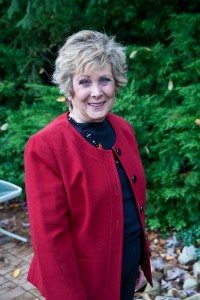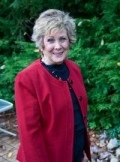Women, Courage, and What Do You See?

Picture yourself standing on barren land where trees have been cut down, destroyed. Think about the people who work for the saw mill who will be out of a job if you start making noise, i.e., talking about the importance of trees for the future of the land. Know that in your country women are meant to be silent, acquiescent to male domination.
There are those like Nobel Peace Prize winner, Wamgari Maathai, who had the inner capacity to see with new eyes. She saw a way out of some of the ecological disaster ready to come to East and Central Africa where the land was becoming parched and dry. The first woman to earn a doctorate degree in her country, she saw the vital need for outer nature to be nourished. She empowered women to plant trees, and plant they did. Millions of trees now keep the land from eroding. This began long, long ago, or so it seems, in 1976, when women had limited voice around the world.
Over 20 million trees were planted on farms, near schools, and in church compounds. A woman who could have remained in the background spoke out and made change happen. Wamgari Maathai was a GUTSY WOMAN, the first nominated to be part of the Nigerian Parliament. Her strong and capable presence, her capacity to stand for what is right and speak out has changed a big part of the world. She did so much before her death on September 25, 2011; she lived with vision and courage. In her words, “We owe it to ourselves and to the next generation to conserve the environment so that we can bequeath our children a sustainable world that benefits all.”
Outer nature is a way of going deep into our own inner nature. It often happens through the arts: music, dance, and painting. Zana Briski, a young woman who graduated from prestigious Cambridge University made a journey between worlds to find another part of her own inner nature. Going from London to Calcutta, it could have seemed like interplanetary travel.
This journey to a complex, different part of the world is not for the faint of heart. It is meant for those who have the courage to see with new eyes and find ways, as Wamgari did before her, to make a difference. In the case of Briski, she would introduce some much marginalized children to a new way of seeing and being through the eyes of some rather inexpensive cameras.
In 1997, Zana discovered Calcutta’s red-light district. She spent months living in a brothel photographing the women and Calcutta’s red light kids, those born to the prostitutes who lived there. She saw the compromised role of women along with the beauty and innocence of their children. This became a life project for her, and once she had gained the trust of the children she took eight of them under her wing to teach them to “see” with new eyes.
Her amazing documentary, “Born into Brothels,“ was awarded an Academy Award for Best Documentary Feature in 2005.
What does this mean for those of us whose busy daily lives take up all the space and energy we have? Think about it. If we just look at any present situation from a slightly different angle, we too can make change happen, in our own backyards. Some of us have the eloquence of speech, others the capacity to write, draw, sing, dance, photograph or just show our loving kindness.
There are opportunities just around the corner to be GUTSY, to impact change, to find a way to be part of the continuity of life and make a better world for our children—and they are all our children. We as women know that, and this is our time to make the difference.
Sylvia Lafair, PhD is president of CEO – Creative Energy Options, Inc. a global consulting company that helps employees and executives target and transform workplace patterns to spark success. She is the award winning author of “Don’t Bring It to Work,” a business relationship expert, executive coach and leadership educator. Her latest book will be released soon, “GUTSY: How Women Leaders Make Change” www.sylvialafair.com. She can be reached at [email protected].
